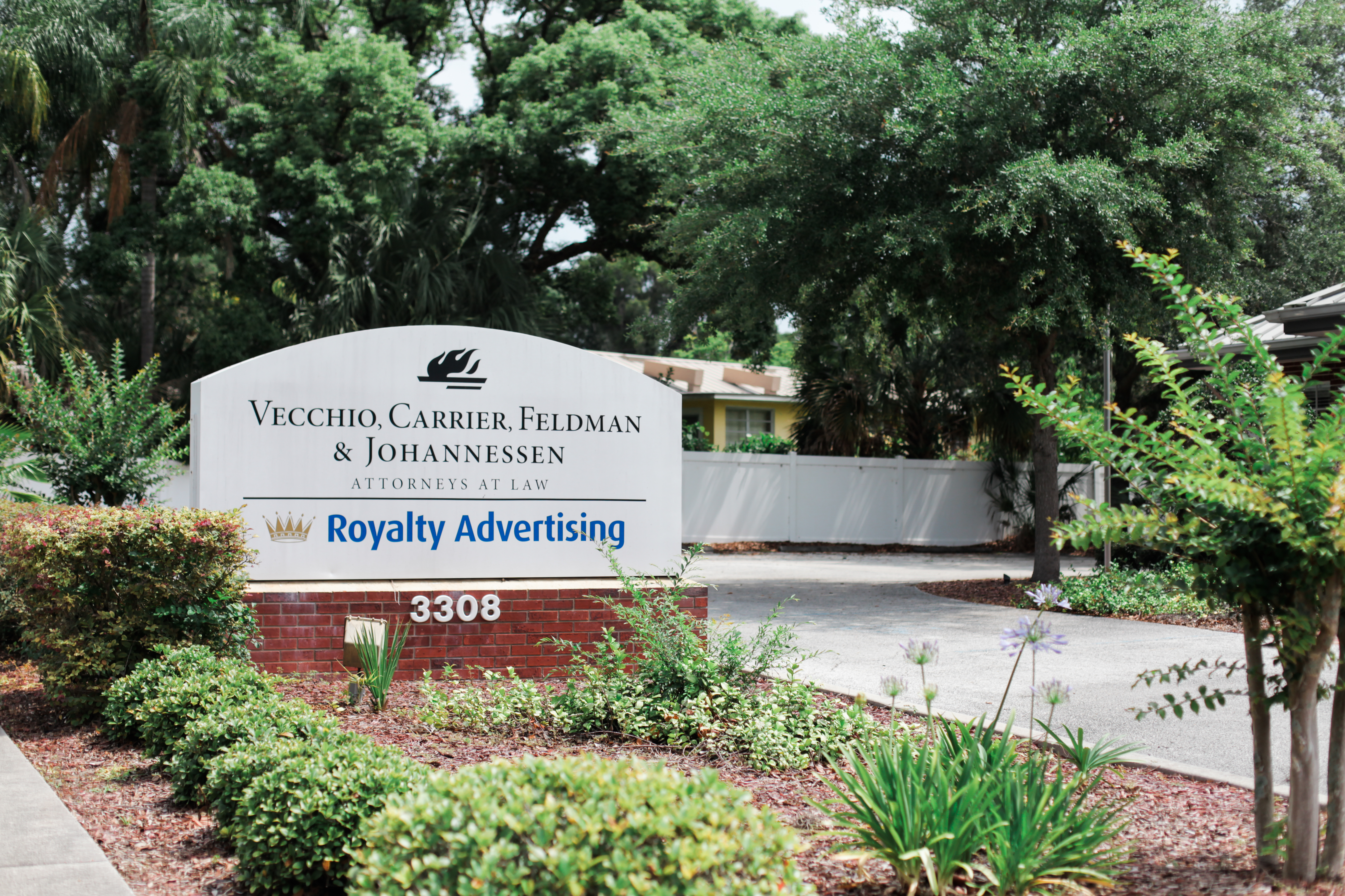Employers and their workers compensation carriers have been hit with two major blows as a result of a decision from the first District Court of Appeals in Miles v. City of Edgewater Police Department and a decision from the Florida Supreme Court in Castellanos v. Next Door Company. Both of these cases deal with different portions of the statute but will result in significant ramifications in how cases are litigated, defended and ultimately settled.
The first case, Miles v. City of Edgewater Police Department, dealt with the question of whether workers compensation claimants were entitled to contract directly with their attorneys to pay fees for representation when no benefits are secured or the value of benefits is so small the statutory recovery right would make representation by an attorney cost prohibitive. Prior to the release of this opinion, the Worker’s Compensation law prohibited claimant paid fees in excess of the statutory amounts under Florida Statute §440.34 (1)(A). The statute further makes a claimant paid fee without JCC approval a crime under §440.105(3)(c). In this particular case the claimant had alleged an occupational exposure which, due to the high burden of proof, contains significant risk of loss at trial on the merits of the claim. Accordingly, the attorney had the claimant execute an agreement waiving the provisions of §440.34 as well as agreeing to pay an hourly fee for prosecution of this complex case. Because the JCC did not have authority under the statute to approve such a fee, the agreement was rejected and counsel withdrew.
In its analysis relative to this case, the first DCA found that the statute precluding the right to contract with an attorney is a direct violation of claimants First Amendment rights. Included in the First Amendment is the freedom of speech, association, and right to petition for redress of grievances. Along with the right to redress petition of grievances is the right to hire and consult an attorney. The court further found that the statute violated the right to contract as the statute was not a valid exercise of the state’s police power. Finally, the court found that if an individual can waive constitutional rights such as the right not to incriminate themselves under the Fifth Amendment, then they can also waive statutory rights such as those in section 440.34.
What this means for Employer’s and Carriers –
This case now allows a claimant’s attorney to be paid for his/her work directly from the claimant regardless of whether they obtain a benefit on their behalf or not. I anticipate we will see retainer agreements that will require the claimant to cover all costs of litigation as well as attorney fees when there is no E/C paid fee or costs owed. I further anticipate the agreements will include language to allow the claimant’s benefit checks to be made out to the trust account of their attorney, and that the attorney will then keep a certain percentage of the check before turning.
The second case, Castellanos v. Next Door Company, dealt with the statutory fee structure for employer/carrier paid fees under F.S. §440.34. The opinion with both concurring and dissenting opinions as well, encompasses 55 pages of complex legal analysis and reasoning all leading up to the two paragraph conclusion that the statutory limitations in F.S. §440.34 is unconstitutional. The Supreme Court of Florida held that a key feature of the workers compensation statute since 1941 has been “reasonable” prevailing party fees. It was the Courts opinion that in 2009 the Legislature created an irrebuttable presumption that every fee calculated in accordance with the fee schedule will be reasonable, yet the case before them clearly revealed this was not true. Accordingly the Florida Supreme Court found that the fee schedule is unconstitutional as a violation of due process under both the Federal and Florida Constitutions and that a reasonable fee must be entered in this case.
What is interesting about this case is the Court does not specifically state whether the fee schedule is still to be used. Based on the reasoning in the opinion, I believe the determination of a reasonable fee will go back to the same standards prior to the 2009 Emma Murray fix. Specifically, any employer/carrier paid fee will have to first go through an analysis of whether the statutory fee is reasonable prior to applying hourly rates. If the fee schedule is not deemed reasonable, then the hourly rate will apply in order to “reasonably” compensate the claimant’s attorney. The issue with this approach is that the judges and attorneys tend to forget about the first step and skip directly to hourly rates. While there are some cases where an hourly rate would be more beneficial than a statutory rate (Example: PTD cases accepted after entitlement to attorney fees attach, but prior to any significant litigation taking place), in most cases the hourly rate will surpass the statutory rate. Further, there were significant abuses by claimant attorneys in the past relative to hourly fees which led to the statutory fee structure recently deemed unconstitutional. Unfortunately, I feel we are doomed to suffer some of those same abuses.
What this means for Employer’s and Carriers –
I anticipate that as a result of this decision we will see an uptick in litigation. Not just in what types of claims are filed, but also in what type of litigation takes place to prove the claims. In fact, I have already seen it. At a recent mediation, opposing counsel threatened to merely just keep filing petitions now that he can be paid an hourly rate, unless my client coughed up more money to settle. Which…leads me to the next effect of these cases – settlements will cost you more. Prior to the 2003 changes, nuisance value settlements were $5,000. After 2003, the value of nuisance claims decreased and it was not uncommon to settle a file for under $2,500. As a result of these opinions, counsel will know that they can artificially increase the exposure of the claim through litigation and drive up the value of settlement as a result.
Another effect these two rulings will have is more litigation over the amount of attorney’s fees. Prior to the 2009 “fix”, we would still see quite a bit of litigation over the amount of attorney fees due. Many of these were left over entitlements from pre 2003 days that had not yet been taken to hearing. As there is no requirement that the claimant attorneys resolve the quantum of fees due within a certain time period, it can sit out there for years. If it is not handled diligently, then all the evidence to support any defenses to reasonableness can disappear. Thus, it is imperative that you resolve the fee issue as quickly as possible. Of course, this may lead to yet another trial on the reasonableness of that fee. This is not just a fee hearing; it is a trial with experts and witnesses to testify as to reasonableness. As a result you will not only have to pay for litigation of the underlying issues but if you lose, you will have to pay for another trial just to reduce fees you don’t want to pay in the first place! Opposing counsel is very aware of this and will use this to their advantage to try and force a higher value settlement than the case may be worth.
Finally, you will see opposing counsel taking more depositions, conducting more discovery and fighting over even the most minor of issues. Why? Because if he wins he can get paid by the E/C for all the time he spends litigating the issue he prevailed upon. If he loses, he can get paid directly by his client. Thus, many more adjuster depositions will also be scheduled to “catch” the adjuster with an untimely handled matter in order to assert entitlement to fees. Keep in mind that disputes over fee entitlement are also subject to payment of attorney fees.
Yes folks…we are back to the days of litigating over a one penny difference in the AWW and adjuster deposition to go over each and every authorization and payment made in excruciating detail. Why? Because the attorneys can now get paid for doing this regardless of whether they win or lose. There is no incentive or deterrent to be selective on the issues and cases taken to trial. The only question for the claimant’s attorney now is…does the client or the E/C pay.


